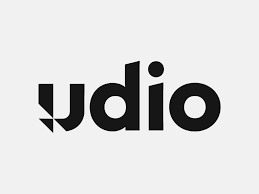As AI-generated music platforms like Udio gain popularity, more creators are asking: is Udio safe? If you’re planning to use the service for music production, monetization, or research, it’s important to understand safety from multiple perspectives: data security, legal compliance, and ethical use.
In this guide, we’ll evaluate Udio’s safeguards, privacy commitments, reputation, and any existing risks—helping you determine if Udio is a trustworthy tool for your creative projects.

Data Security: Encryption, Compliance, and Hosting
Udio employs standard industry security protocols to protect user data:
PCI-DSS Compliance: Udio processes payments through Stripe, ensuring credit card data is securely handled
Encryption in Transit and at Rest: Sensitive information—including uploads and outputs—is encrypted via HTTPS.
Security Certifications: According to Nudge Security, Udio is certified under SOC 2, ISO 27001, GDPR, HIPAA, and FedRAMP, and participates in vulnerability disclosure and bug bounty programs
Daily Data Deletion: Add-ons like the Chrome Udio plugin claim that user data is automatically deleted daily in compliance with GDPR and CCPA.
These measures indicate Udio has built a robust security posture, comparable to enterprise-grade SaaS systems.
Privacy Policy: User Rights and Data Use
Udio’s privacy documentation outlines its approach to data collection and use:
Collected data: personal information, uploads, and usage logs.
Purpose: service delivery, model development, and analytics.
User control: you may delete your account and data via settings or support.
Transparency: third-party service providers like Stripe and Supabase handle payment and authentication, bound by their own policies.
This aligns with standard privacy norms—nothing out of the ordinary or concerning is present for users.
User Experiences: Real Feedback and Scam Warnings
While the Udio brand is safe, be cautious of impostor sites, such as “udioai.ai”, which have scammed users with fake subscriptions.
On Reddit, one user noted that the official site performed reliably:
“So many scam sites… meanwhile I’ve been very impressed with Udio. It’s a pro tool if you have the words suited for a song.”
The advice is clear: always use udio.com, check for the official Chrome extension, and avoid any imitators.
Legal and Ethical Risk: Copyright and Training Data
A major concern is whether Udio is legally safe in terms of copyright:
Lawsuit filings: Record labels (Sony, UMG, Warner) filed lawsuits alleging Udio trained its models on copyrighted music without permission.
Udio’s Fair Use defense: The company argues its training approach is lawful as fair use and uses “extensive automated copyright filters”.
Industry negotiations: Labels and Udio are reportedly negotiating licenses to establish proper usage frameworks.
Although legal challenges are active, for users, the main risk lies in generating music that may infringe—usage rights for output music remain uncertain until these lawsuits and negotiations conclude.
Business Integrity: Governance and Community Reputation
Udio is helmed by former Google DeepMind engineers such as David Ding and supported by investors like a16z and will.i.am. The company has received both praise and criticism—from professional reviews to in-depth tech articles in outlets like ZDNET and PC World .
While output quality varies, Udio is generally viewed as genuine—provided users avoid scam versions.
FAQ: Is Udio Safe?
Is Udio secure for my uploads?
Yes. Udio encrypts data, deletes user uploads daily, and adheres to GDPR and PCI-DSS standards.
Does Udio sell my data?
No indication that Udio sells personal or usage data. Any sharing likely occurs under necessary third-party service protocols.
Are Udio-generated songs legally mine?
Terms suggest users can use output commercially, but copyright disputes related to training data might risk broader infringing content.
Should I be warned about scams?
Yes. Fake domains like udioai.ai have scammed users. Always use official channels like udio.com.
Will legal issues affect my use?
Perhaps in the future. Ongoing negotiations and lawsuits may involve content monitoring or licensing mechanisms. Stay updated.
Conclusion: Is Udio Safe to Use?
In summary, Udio is secure, with strong technical safeguards, enterprise-level compliance, and community trust—just ensure you use the correct website and services.
However, legal risk remains until resolution of copyright lawsuits and licensing. Users should be cautious when distributing Udio-generated music commercially, as training data controversies could complicate rights—especially in high-visibility use cases.
For safe use:
Use official site only (udio.com)
Avoid uploading sensitive copyrighted content
Monitor legal updates around copyright training usage
Use Udio responsibly, and acknowledge possible future licensing changes
Overall, if you're experimenting or creating early-stage content, Udio is safe. Just be conscientious if you plan to monetize.
Learn more about AI MUSIC



